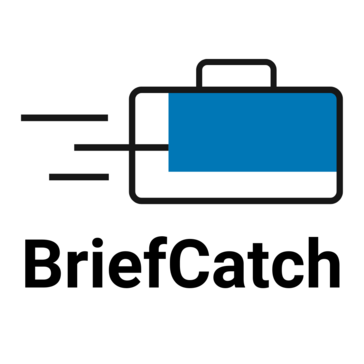
BriefCatch is a legal writing assistant that improves clarity, flow, and credibility inside Word and Outlook. It surfaces jargon, passive voice, and throat clearing, proposes stronger verbs and simpler alternatives, and highlights reader risks that slow judges and clients. With context aware suggestions tuned for briefs, motions, and contracts, it helps teams polish drafts faster while preserving each author's voice and strategic choices. Benchmarks and analytics reveal where writers improve over time and how edits change readability for the audience that matters most. It also respects
Work where you draft. BriefCatch analyzes sentences in place and flags clutter, passive voice, nominalizations, cliches, and hedging. Suggestions reflect the document type and audience, whether you are writing a motion, brief, memo, or contract. Inline explanations show why each change helps the reader, making edits teachable and repeatable across matters and teams. Keyboard shortcuts accept or skip suggestions quickly, and Track Changes shows edits clearly so partners can review substance without distraction. Rules account for common legal patterns, avoiding false positives on defined terms or necessary passive constructions. Teams can bookmark examples that illustrate a preferred approach and reuse them as quick references in future drafts.
See readability scores, sentence length distribution, and transitions that cause speed bumps for judges and clients. Identify weak openings and buried points, then tighten paragraphs without losing nuance. Dashboards compare drafts over time, so associates learn faster and partners can review at the level of risk that fits the matter. Version comparisons highlight sections that improved most, and configurable targets help teams decide where to invest coaching time next. Heat maps reveal paragraphs that slow readers, prompting targeted rewrites that keep arguments front loaded and easy to follow. Dashboards slice by document type so benchmarks reflect motions, briefs, memos, or contracts rather than a generic average.
Catch common citation and style problems before filing or sending a draft to a client. Spot inconsistent defined terms, numbering, capitalization, and punctuation so documents feel professional and coherent. Custom firm style preferences keep work product aligned across practice groups without long back and forth on basics. Optional firm rules reinforce preferred Bluebook choices, defined term glossaries, and numbering conventions across matters and templates. Cross references are checked for numbering drift, and mismatched definitions are flagged before signature or filing. House style items like serial commas, en dashes, and section symbols are enforced to keep documents consistent.
Tune voice from forceful to neutral depending on the reader. Reduce loaded adjectives, replace hedges with precise claims, and redirect emphasis to the strongest points. Examples drawn from legal writing best practices make revisions precise and defensible when a team debates phrasing. Side by side previews let teams compare alternative phrasings and pick the tone that best suits the venue and the reader. The guidance frames edits in reader centered terms, helping teams agree on language that persuades without overstatement. Reviewers can annotate suggested changes with short notes that explain reasoning for later training sessions.
Track common issues by writer and matter, measure improvement, and share patterns that save review time. Usage analytics reveal where training pays off and which edits consistently raise clarity. Leaders get a practical view of quality while preserving author discretion for stylistic choices and case strategy. Downloadable reports summarize common issues by writer and practice group so training focuses on changes that move the needle. Matter level rollups show where edits saved time in partner review and which patterns correlate with fewer revision rounds. Objective trends give hiring and training committees a clearer view of growth without judging individual voice.


Recommended for litigators, transactional attorneys, in house counsel, and legal ops teams who want clearer briefs, memos, and contracts in less time. Use BriefCatch to standardize quality, shorten reviews, and coach junior writers with concrete, context aware examples that improve judgment and craft. Firms use it to shorten turnaround on partner markups, and corporate teams rely on it to standardize voice across business units. It also helps compliance, policy, and public affairs groups publish plain language documents with fewer iterations.
Traditional spellcheck misses legal nuance and style choices that affect persuasion. BriefCatch surfaces clarity, tone, and citation issues inside Word and Outlook, aligns teams on preferred patterns, and turns edits into teachable moments. The result is cleaner documents, faster review cycles, and writing that respects the reader's time while strengthening your position. Instead of ad hoc style debates, teams get shared criteria and concrete examples that speed consensus. Editors recover hours each week because routine wording fixes and consistency checks happen before final review.
Visit their website to learn more about our product.


Grammarly is an AI-powered writing assistant that helps improve grammar, spelling, punctuation, and style in text.

Notion is an all-in-one workspace and AI-powered note-taking app that helps users create, manage, and collaborate on various types of content.
0 Opinions & Reviews